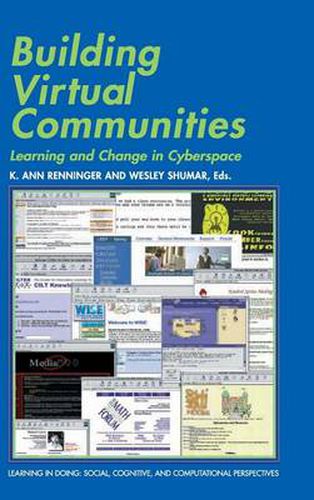Readings Newsletter
Become a Readings Member to make your shopping experience even easier.
Sign in or sign up for free!
You’re not far away from qualifying for FREE standard shipping within Australia
You’ve qualified for FREE standard shipping within Australia
The cart is loading…






Building Virtual Communities examines how learning and cognitive change are fostered by online communities. Contributors to this volume explore this question by drawing on their different theoretical backgrounds, methodologies, and personal experience with virtual communities. Each chapter discusses the different meanings of the terms community, learning, and change. Case studies are included for further clarification. Together, these chapters describe the building out of virtual communities in terms that are relevant to theorists, researchers, and practitioners. The chapters provide a basis for thinking about the dynamics of Internet community building. This includes consideration of the role of the self or individual as a participant in virtual community, and the design and refinement of technology as the conduit for extending and enhancing the possibilities of community building in cyberspace. Building Virtual Communities will interest educators, psychologists, sociologists, and researchers in human-computer interaction.
$9.00 standard shipping within Australia
FREE standard shipping within Australia for orders over $100.00
Express & International shipping calculated at checkout
Building Virtual Communities examines how learning and cognitive change are fostered by online communities. Contributors to this volume explore this question by drawing on their different theoretical backgrounds, methodologies, and personal experience with virtual communities. Each chapter discusses the different meanings of the terms community, learning, and change. Case studies are included for further clarification. Together, these chapters describe the building out of virtual communities in terms that are relevant to theorists, researchers, and practitioners. The chapters provide a basis for thinking about the dynamics of Internet community building. This includes consideration of the role of the self or individual as a participant in virtual community, and the design and refinement of technology as the conduit for extending and enhancing the possibilities of community building in cyberspace. Building Virtual Communities will interest educators, psychologists, sociologists, and researchers in human-computer interaction.